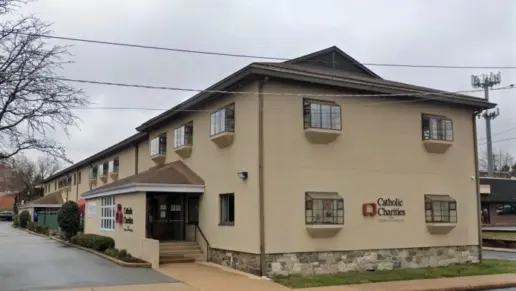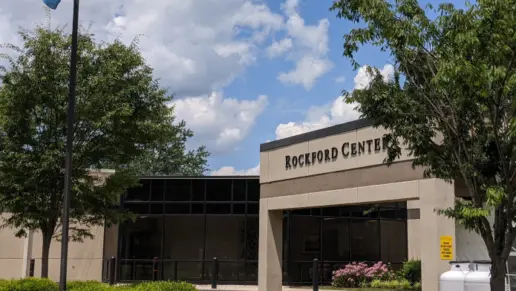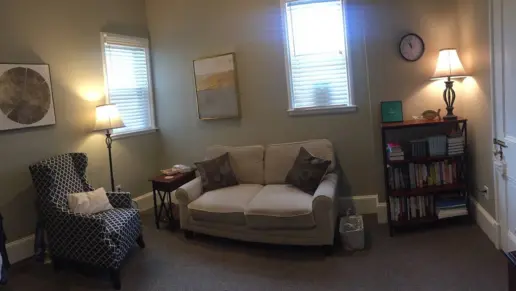This place has saved my life, the staff is amazing with all the patients, they help them to be happy, thanks to them I now have a future, I would recommend to anyone visiting this place, they can not imagine how much they will help them.
About Brandywine counseling community services
Brandywine Counseling and Community Services Dover offers rehabilitation classes for drug offenders and mandated court-ordered classes for men and women in Kent County. The Dover, Delaware location is expected to offer addiction treatment in the near future.
Brandywine Counseling and Community Services in Dover offers a Drug Diversion Program, a DUI Treatment Court Program, a First Stop DUI Offender Program, and an assessment program called the Delaware Screening Assessment and Referral Program.
If a formal judgment has been made in the state of Delaware for a DUI violation, the individual must be screened by the Delaware Screening Assessment and Referral Program. This program helps place people into the appropriate education or treatment program and is only for adults age 18 and over who have been ordered to participate by the Delaware Courts or Delaware Division of Motor Vehicles.
The First Stop DUI First Offender Program lasts a minimum of eight weeks and is for those who obtained a DUI and completed the Delaware Screening Assessment and Referral Program.
This educational program requires participation in class one time a week. If there is an additional requirement of participating in an outpatient treatment program, completing two meetings a week is required. It is mandatory to submit two random urine drug screening tests a week for all participants.
The drug diversion program serves those who have misdemeanor charges or drug charges due to being diagnosed with substance use disorder. This program creates the chance to resolve drug charges that may otherwise result in a conviction, loss of driver’s license, a prison sentence, or probation. Participants must be aged 18 and up, and eligibility is determined by the attorney general’s office or ordered by the superior court.
The attorney general’s office may afford second time DUI offenders, or first time DUI offenders with a high blood alcohol concentration, the opportunity to participate in DUI Treatment Court to avoid incarceration. To be eligible. participants must be 18 years of age or older. A risk and needs assessment is completed with the court prior to beginning the program. In order to qualify, it must be determined that the case is considered high risk and high needs.
Latest Reviews
Rehab Score
Gallery
Other Forms of Payment
Private insurance refers to any kind of healthcare coverage that isn't from the state or federal government. This includes individual and family plans offered by an employer or purchased from the Insurance Marketplace. Every plan will have different requirements and out of pocket costs so be sure to get the full details before you start treatment.
Self-pay involves paying for treatment out of your own pocket. You can use savings or credit, get a personal loan, or receive help from family and friends to fund your treatment. If you don't have insurance or your insurance plan doesn't cover a specific program, self-pay can help ensure you still get the care you need.
Financial aid can take many forms. Centers may have grants or scholarships available to clients who meet eligibility requirements. Programs that receive SAMHSA grants may have financial aid available for those who need treatment as well. Grants and scholarships can help you pai for treatment without having to repay.
Sliding scale payments are based on a client's income and family size. The goal is to make treatment affordable to everyone. By taking these factors into account, addiction recovery care providers help ensure that your treatment does not become a financial burden to you or your family, eliminating one barrier to care.
Medicare is a federal program that provides health insurance for those 65 and older. It also serves people under 65 with chronic and disabling health challenges. To use Medicare for addiction treatment you need to find a program that accepts Medicare and is in network with your plan. Out of pocket costs and preauthorization requirements vary, so always check with your provider.
Medicaid is a state based program that helps lower-income individuals and families pay for healthcare. Medicaid covers addiction treatment so those enrolled can use their coverage to pay for rehab. When a program accepts Medicaid the client often pays very little or nothing out of their own pocket.
Military members, veterans, and eligible dependents have access to specific insurance programs that help them get the care they need. TRICARE and VA insurance can help you access low cost or no cost addiction and mental health treatment. Programs that accept military insurance often have targeted treatment focused on the unique challenges military members, veterans, and their families face.
Addiction Treatments
Levels of Care
Treatments
The goal of treatment for alcoholism is abstinence. Those with poor social support, poor motivation, or psychiatric disorders tend to relapse within a few years of treatment. For these people, success is measured by longer periods of abstinence, reduced use of alcohol, better health, and improved social functioning. Recovery and Maintenance are usually based on 12 step programs and AA meetings.
Recovery is possible for those who complete drug rehab in Delaware. These programs specialize in providing an environment that encourages sobriety and a professional staff that provides the tools to overcome addiction. Participants receive a customized treatment plan tailored to their needs.
Many of those suffering from addiction also suffer from mental or emotional illnesses like schizophrenia, bipolar disorder, depression, or anxiety disorders. Rehab and other substance abuse facilities treating those with a dual diagnosis or co-occurring disorder administer psychiatric treatment to address the person's mental health issue in addition to drug and alcohol rehabilitation.
Dual-diagnosis rehabs in Delaware offer comprehensive care for individuals needing mental health and substance abuse treatment. The phrase dual-diagnosis means an individual has an addiction and a co-occurring mental health condition at the same time. Typically, you can expect these rehabs provide various levels of care, including inpatient, detox, and outpatient. You'll receive a mental health assessment and individualized treatment plan, medication (if necessary), counseling, and behavioral therapies, like cognitive-behavioral therapy (CBT).
Opioid rehabs specialize in supporting those recovering from opioid addiction. They treat those suffering from addiction to illegal opioids like heroin, as well as prescription drugs like oxycodone. These centers typically combine both physical as well as mental and emotional support to help stop addiction. Physical support often includes medical detox and subsequent medical support (including medication), and mental support includes in-depth therapy to address the underlying causes of addiction.
Programs


Clinical Services
When used in treatment sessions, cognitive behavioral therapy in Delaware has been shown to be an effective method to address a variety of mental health disorders, including substance use disorders. An advantage of this method is its ability to also address any co occurring disorders such as anxiety, depression, and PTSD.
Group therapy is any therapeutic work that happens in a group (not one-on-one). There are a number of different group therapy modalities, including support groups, experiential therapy, psycho-education, and more. Group therapy involves treatment as well as processing interaction between group members.
In individual therapy, a patient meets one-on-one with a trained psychologist or counselor. Therapy is a pivotal part of effective substance abuse treatment, as it often covers root causes of addiction, including challenges faced by the patient in their social, family, and work/school life.
Trauma therapy addresses traumatic incidents from a client's past that are likely affecting their present-day experience. Trauma is often one of the primary triggers and potential causes of addiction, and can stem from child sexual abuse, domestic violence, having a parent with a mental illness, losing one or both parents at a young age, teenage or adult sexual assault, or any number of other factors. The purpose of trauma therapy is to allow a patient to process trauma and move through and past it, with the help of trained and compassionate mental health professionals.
Research clearly demonstrates that recovery is far more successful and sustainable when loved ones like family members participate in rehab and substance abuse treatment. Genetic factors may be at play when it comes to drug and alcohol addiction, as well as mental health issues. Family dynamics often play a critical role in addiction triggers, and if properly educated, family members can be a strong source of support when it comes to rehabilitation.
Several life skills are important to develop during and after rehab treatment in Delaware. They include communication and interpersonal skills. These life skills will help you repair, maintain, and create healthy relationships, which are important for long term sobriety.
Amenities
-
Private Setting
Staff & Accreditations
Staff

President & Chief Executive Officer

Chief Financial Officer

Medical Director

Chief Operating Officer

Director of Quality Assurance

Director of Nursing

Human Resource Director

Director of Prevention & Early Intervention
Accreditations

The Joint Commission, formerly known as JCAHO, is a nonprofit organization that accredits rehab organizations and programs. Founded in 1951, the Joint Commision's mission is to improve the quality of patient care and demonstrating the quality of patient care.
Joint Commission Accreditation: Yes

The Substance Abuse and Mental Health Services Administration (SAMHSA) is a branch of the U.S. Department of Health and Human Services. Established in 1992 by congress, SAMHSA's mission is to reduce the impact of substance abuse and mental illness on American's communities.
SAMHSA Listed: Yes
Contact Information
698 S Bay Rd
Dover, DE 19901


